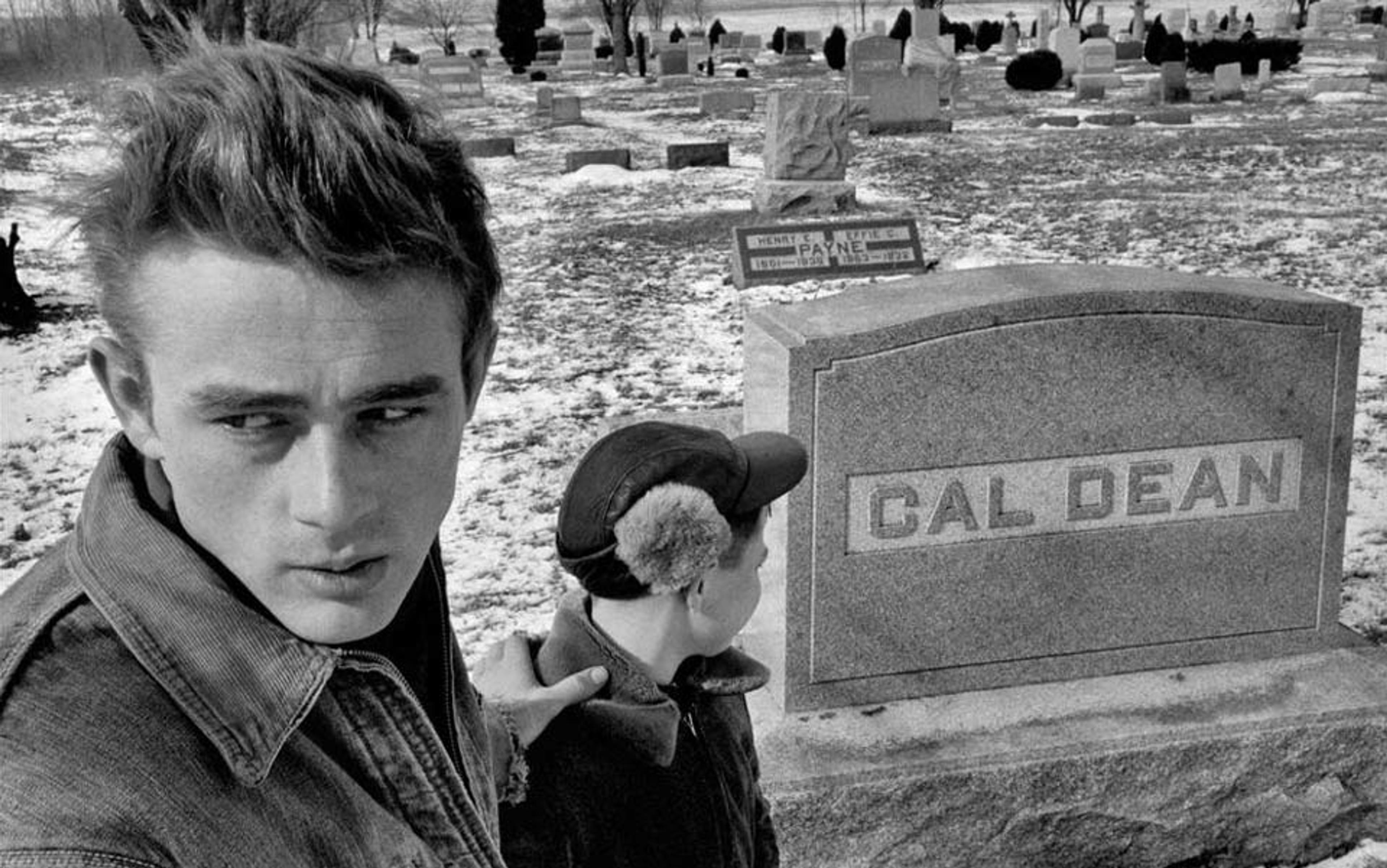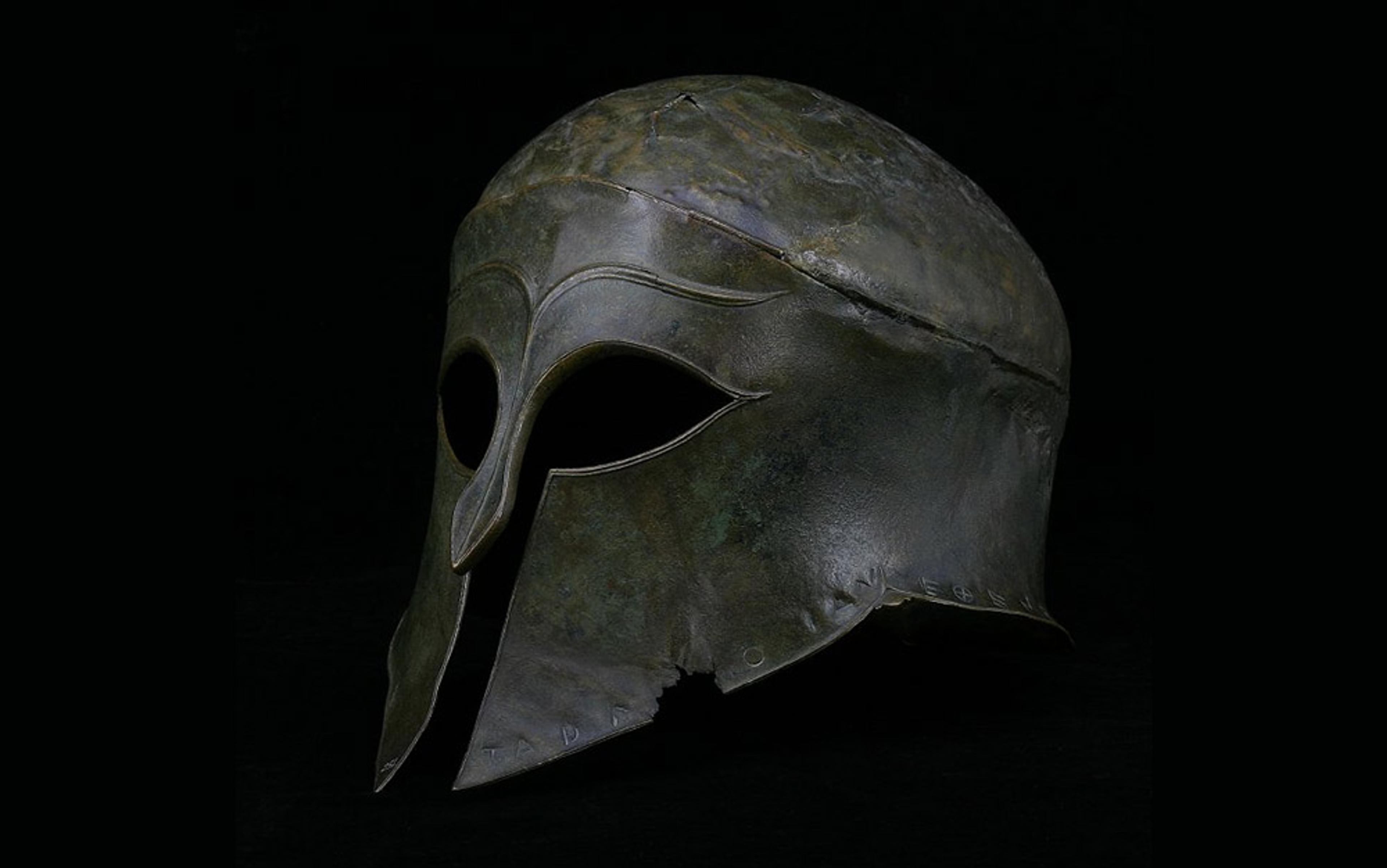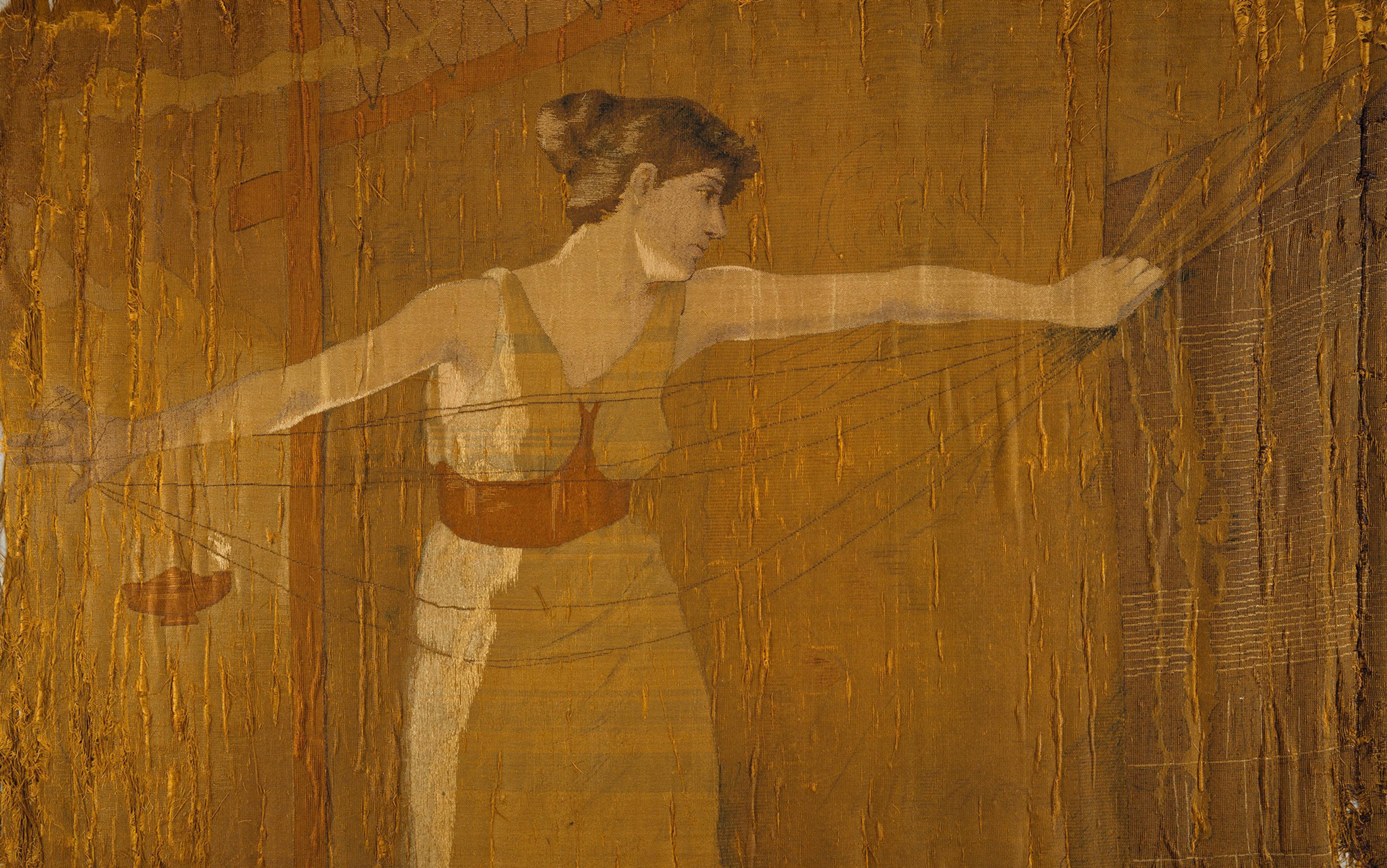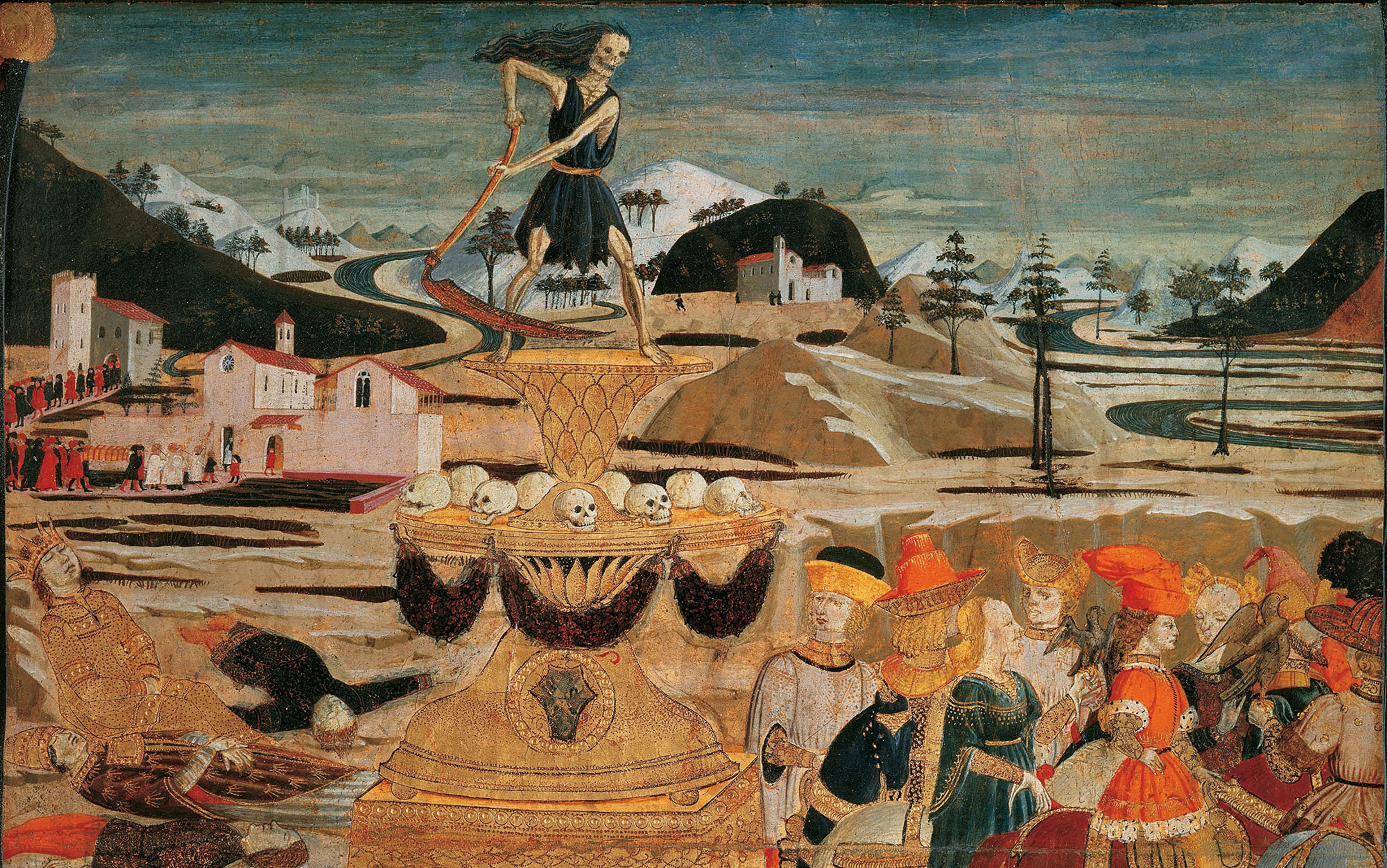Glaucus was no coward. He had killed four men, and that was no easy matter when they were charging at him through the dust and din, waving sharp swords and screaming. In those days, it wasn’t just a matter of pulling a trigger or pressing a button. You had to push your spear hard through armour and bone, and watch as their eyes first pleaded, then grew large, then went out.
At the same time, though, Glaucus wasn’t entirely sure about this business of killing and dying. At the head of the Trojan allies gathering to storm the Greek camp, he hesitated. His cousin and commander, Sarpedon, king of Lycia, saw his hesitation, turned to him and said: ‘My good friend, if, when we were once out of this war, we could escape old age and death for ever, I should neither press myself forward in battle nor bid you do so. But death in 10,000 forms hangs ever over our heads, and no man can elude him; therefore let us go forward and win glory.’
So together they led the Lycian division in a charge at the Greek barricades, causing panic among the defenders. But the Greeks had their own heroes out to win glory: the giant Ajax came running to rally his comrades, accompanied by his brother Teucer the archer, who promptly shot Glaucus in the arm as he was mounting the rampart. Our hero was forced to withdraw from the battle, his bid for glory thwarted.
Only later, when the tide of war had changed and the Greeks were on the offensive, did Glaucus have a second chance. Achilles, the greatest warrior of them all, had led a charge deep into Troy before falling to that famous arrow in the heel; a fierce fight then raged over his body and god-forged armour, and Glaucus led the Trojan side. But again the mighty Ajax stood in his way, and this time ended the young Lycian’s glory-seeking for good.
You might not have heard of Glaucus. His was, after all, only a bit part in the drama of the Trojan war. He was valiant enough, but failed in both his attempts to win a place on the A-list of heroic celebrity. This might make him seem rather pitiable (and we haven’t even mentioned the episode when ‘Zeus took his wits’ and Glaucus swapped his golden armour for another warrior’s outfit of mere bronze). But if we are tempted to pity him, then we haven’t listened closely enough to his friend Sarpedon: if Glaucus had not fought at Troy, would he have ‘escaped old age and death for ever’? Of course not; no one does. But through his valorous – if slightly ineffectual – exploits, here I am writing about him 3,000 years later. That was the prize for which he fought. He won.
The idea that fame is a kind of immortality is an ancient one that shows no sign of losing its attraction. But why? What good does it do the dead to be famous? What does Glaucus gain from his posthumous B-list celebrity? On the one hand, we can all understand the impulse to make a name for ourselves and leave a legacy; yet on the other hand, as soon as we think about it for a moment, it seems like madness. Fame seems a very flimsy thing to die for. And where we find an idea that is both pervasive yet flimsy, it suggests that there is something deeper at work, some inescapable oddness – or error – in the way we see the world.
If Glaucus were born today, which profession would he choose? Not soldiering, I am sure, since mechanisation has ceased to be the royal road to glory. My guess is that he would today pick up a microphone instead of a sword, and strike out for musical fame. He would enter TV talent shows (‘Lycia Seeks a Superstar’), probably coming second. He would have a professional-looking website, and a Facebook page whose ‘likes’ he would check regularly.
Then, like Kurt Cobain and Jimi Hendrix, Janis Joplin and Amy Winehouse, he would cement his (rather modest) stardom by dying at the age of 27. Unlike the Homeric original, our modern-day hero would not be struck down by Ajax’s spear, but perhaps rather – like a still earlier namesake, Glaucus son of Sisyphus – succumb to a horse-related misadventure of one kind or another. The newspapers would write about him, though not on the front page, and his fans would set up online monuments. The world (or a bit of it anyway) would remember his name.
Yes, we live in a celebrity culture. But as is clear from reading Homer’s account of the Greek heroes, we are far from the first to do so. Thoughts of posterity have always inspired poets and politicians, sportsmen and scientists, just as they do today. In 1380, Geoffrey Chaucer wrote a major poem examining the inhabitants of the ‘House of Fame’. A few centuries later, John Milton wrote that ‘Fame is the spur that the clear spirit doth raise… to scorn delights, and live laborious days’. A few centuries after that, the Spanish man of letters Miguel de Unamuno noted that ‘the man of letters who shall tell you that he despises fame is a lying rascal.’
Naturally, a lot of this is motivated by the worldly rewards to being famous: sex, money, ego-stroking attention and the like. Glaucus and his cousin Sarpedon remind themselves of these perks of heroism as they stand on the battlefield: how they receive the choicest portions of meat and their cups are kept brimming; how simple people look up to them as though they were gods. Celebrities today, whether sportsmen or Noble Prize winners, could say much the same. It is not surprising that people would sacrifice a good deal to attain such benefits, working hard and taking risks. And yet there is one sacrifice that these worldly perks do not explain: that of life itself.
The pursuit of fame has always been about creating something that can outlast our ephemeral physical selves
In his battlefield speech to Glaucus, Sarpedon acknowledges that they are likely to die and consoles his cousin with the thought that they would be dead soon enough, one way or another. Still, they might have hoped to be among those who dodged the spears and wore the laurels home. Not so Achilles, greatest of the heroes: he knew – because it was prophesied – that he would die if he chose the warrior’s path. ‘I carry two sorts of destiny towards the day of my death,’ he said in the Iliad: ‘If I stay here and fight beside the city of the Trojans, I shall not return home, but my glory shall be everlasting; whereas if I return home to the beloved land of my father, my glory will be gone, but there will be long life left for me.’ He did not return home, but stayed to spill his blood on a foreign battlefield so that we might still talk about him today.
Achilles, one of the icons of Western civilisation, taught us that everlasting glory is worth dying for. Many have followed him, on the battlefield and elsewhere, such as that other icon, the film star James Dean, who said: ‘To me the only success, the only greatness, is immortality,’ shortly before dying at the age of 24. The pursuit of fame has always been about more than wealth and adulation. It has always been about creating something that can outlast our ephemeral physical selves. In the words of Irene Cara’s undying 1980s hit: ‘Fame! I’m gonna live forever … Baby, remember my name. Remember, remember, remember…’
Empirical studies have demonstrated this close link in our minds between the pursuit of fame and our desire to overcome death. For example, in experimental conditions, when subtly reminded of their mortality (but not other unpleasant or disturbing things), people expressed a greater desire to become famous, or to have a star (a quintessentially enduring object) named after them. So despite its inherent implausibility, the belief that celebrity helps us to transcend mortality seems to be more than a mere metaphor. Like Glaucus and Achilles, we really do seem to believe that it is a way of living on.
Socrates found all this rather puzzling, but he thought he had an explanation. In Plato’s Symposium, he relates with approval the words of Diotima of Mantinea, a priestess who was his ‘instructor in the arts of love’: these great deeds, whether of music or poetry or war, she said, are the acts of men whose ‘souls are pregnant’. The impulse is just the same as ‘those who are pregnant in the body’ and who ‘betake themselves to women and beget children’. In both cases, ‘their offspring, as they hope, will preserve their memory and give them the blessedness and immortality which they desire in the future.’
Fame, according to Socrates, is therefore a form of reproduction. For those who can achieve it, it is far superior to the messy biological kind.
Who, when he thinks of Homer and Hesiod and other great poets, would not rather have their children than ordinary human ones? Who would not emulate them in the creation of children such as theirs, which have preserved their memory and given them everlasting glory?
Socrates is here expressing a fundamental belief of the Greeks: that acts of heroism or epic poems are not only nobler than mere sprogs, but also considerably more durable. Where living things fall like leaves in autumn, our cultural objects can endure. Kingdoms, titles and honour survive to be passed from one generation to the next; stories persist to be told by new generations of bards; bronze statues do not fall sick. Unlike human children, cultural offspring promise to be ‘everlasting’.
we are willing to die for glory because of a cognitive blip
Let us call this ‘cultural reproduction’. By dying young, Achilles and James Dean gave up opportunities to reproduce biologically, but successfully managed to reproduce themselves culturally – and on a grand scale. Countless images of both, from marble busts to film reels, have populated the world like an army of clones.
This might not seem like real immortality to a skeptic – such as the comedian Groucho Marx, who asked: ‘Why should I care about posterity? What’s posterity ever done for me?’ Indeed, when we think about it, it seems that posterity has not done much for us, and won’t do even if we populate it with statues of ourselves. But that is only when we think about it. The underlying urge to reproduce in the cultural realm comes from a place much deeper than thought. When we reflect on it, the spell is briefly broken, but it beguiles us again as soon as we stop our reflecting. This is, I believe, because our compulsion to seek renown – to culturally reproduce – is built into our brains.
It is, however, a kind of by-product, a clash of pre-historic instincts with advanced cultures. In other words, we are willing to die for glory because of a cognitive blip. Or, to quote another 1980s hit, by the Smiths: ‘Fame, fame, fatal fame/It can play hideous tricks on the brain.’
In the millions of years in which our brains evolved, there were no culturally produced representations of people. Australopiths did not paint portraits of each other; Homo erectus, the most successful hominid of the past 2 million years and the one from which, perhaps, we evolved, did not cast statues. The oldest clear representations of humans date back about 40,000 years, and scholars believe they represent archetypes of fertility rather than specific individuals.
So throughout our long evolutionary history and until very recently, every human we saw was a real one. We would have treated it accordingly. Given how basic this reaction would have been to our survival, we would not expect it to depend on conscious thought processes, but rather to be hard-wired – and indeed, many studies have shown that even newborn human babies are more responsive to human faces than to other objects.
So when people were confronted with images of humans, they must have reacted to them in the only way they knew – the way they react to real humans. The studies showing that babies respond naturally with increased interest to human faces also show that this applies equally to pictures of human faces. We are, of course, capable of learning the difference between representation and reality as we grow older, and in our contemporary society, so awash with images, we become adept at doing so. (Although it takes time: when they see me on television or video, my young children try to talk to the recording of me on the screen even when I am standing right next to them in real life.) But for earlier peoples, this was not a skill that they had much opportunity or encouragement to develop.
And so what we see across all cultures is a systematic failure to distinguish between flesh-and-blood humans and representations of them. In almost all early civilisations we find images – statues, for example – worshipped as if they were living gods or kings. Similarly in magical practices such as voodoo, a model of a person is treated as a part of that person’s self. And from China to Native America, the initial reaction to photographs was that they literally peel off a layer of the person’s soul and trap it on paper.
It seems, then, that what we perceive when we are reproduced in the cultural sphere is a kind of magical act of creation. Because I believe the representation to be in some way real, I feel that my fragile biological self is being transmitted into a new form: a process in which I become stone or become song. It is a process in which I transcend the body and so attain immortality. Whatever rational skepticism we might impose, we cannot help but fall for this magic, any more than we can help falling for an optical illusion. It is this act of ancient sorcery that all our fame-seekers have attempted, from Glaucus to Lady Gaga.
We can further speculate about another in-born mechanism at work. Throughout our evolutionary history, we would have been familiar with our own image only through imperfect and transient reflections on water. As the enduring myth of Narcissus testifies, we are drawn to this image – and there is a sound evolutionary reason why this should be so: when we see it in others, even partially, it is an indicator of biological closeness. This would have been particularly important for recognising paternity in the millennia before genetic testing, and modern studies show that fathers indeed invest more resources in children that look more like them.
a father’s satisfaction when he sees himself in his offspring is transferred to his own likeness in a statue, poster or magazine
How then do we react to an image in which this family resemblance is total – as it is in a statue, for example, or film reel? If we are willing to invest more in a child that looks somewhat like us, how much are we willing to invest in the cultural child that is completely like us? The answer, when we look at martyrs such as Achilles or James Dean, seems to be: everything.
It is worth remembering that until recently, biological reproduction was also mysterious. Genes, the mechanisms of heredity, were discovered a little more than a century ago. It is then understandable that we are programmed to respond to physical likeness as a positive sign of reproductive success – a sign that we are succeeding in projecting ourselves into the future. In the environment in which our brains evolved, that likeness would have been found only in biological relations, yet with the increasing ability to construct representations, that same likeness could be created in cultural artefacts. But we have not evolved new ways of responding to these images. As a result, the satisfaction that a father feels when he sees himself in his offspring is transferred to his own likeness in the bronze statue, film poster or magazine.
So Socrates’ teacher Diotima was right when she suggested that the impulse to create cultural offspring is analogous to the urge to have biological children; that it is in fact the same impulse transferred. Because we regard the representations we make as in some sense real, and because we are inclined to see likeness of self as successful reproduction, we are compelled to replicate ourselves in the cultural realm. That is why Glaucus, Achilles and countless others are, in the words of Diotima: ‘ready to run all risks far greater than they would have for their children, and to spend money and undergo any sort of toil, and even to die, for the sake of leaving behind them a name which shall be eternal.’
Is this therefore a kind of madness? Diotima is ambiguous: on the one hand, she gently mocks this very male pursuit of glory: ‘think only of the ambition of men, and you will wonder at the senselessness of their ways, unless you consider how they are stirred by the love of an immortality of fame,’ she says. But on the other, she praises the works of Hesiod and Homer, whom she takes to have been inspired by that very love.
Homer himself, however, takes a much darker view. Having described in great detail the bloodshed of the Trojan War, he has the hero Odysseus descend to Hades to visit the spirits of his dead comrades. There he meets Achilles, who he believes must be revelling in his renown as the most celebrated of heroes. But no: ‘do not you make light of death, illustrious Odysseus,’ Achilles replies, ‘I would rather work the soil as a serf to some landless peasant than be King of all these lifeless dead.’ So it was all for nothing – as Homer hopes we will learn from Achilles’ lesson.
But can we overcome these urges that lie deeper than thought? Alas, recognising the problem doesn’t seem to get us very far. Why would I be writing about the folly of fame, if not so that you remember my name?






